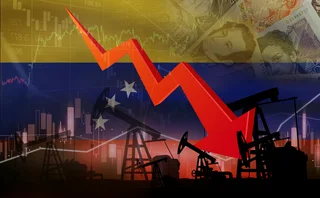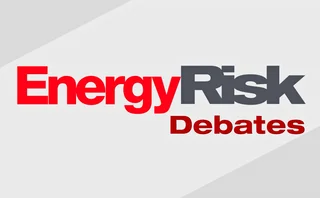Energy Risk Commodity Rankings 2023: adapting to new market dynamics
Winners of the 2023 Commodity Rankings provided reliability when clients faced extreme change

Click here to view tables
Commodity market participants experienced head-spinning change over the past year. Decades-old trade routes were upended and supply chains weakened following Russia’s February 2022 invasion of Ukraine, while Covid-19 lockdowns in China continued to disrupt supply and demand norms.
As oil and gas prices spiralled, markets, particularly in Europe, became subject to higher levels of government and regulatory scrutiny and input. Various schemes to cap retail prices have added to longer term uncertainty in the wholesale markets.
High inflation and rising interest rates also added further risk and increased the focus once again on counterparty credit risk.
The winners of this year’s Commodity Rankings have demonstrated enormous resilience in the face of such uncertainty, remaining reliable and effective in extreme conditions. Not only has carrying out risk management been more essential than ever over the past year, it has also become more difficult. Many tried and tested models have had to be overhauled or abandoned amid such change. Hedging has become more expensive and riskier with ongoing price volatility, resulting in some eye-watering margin calls.
Faced with this level of challenge, many energy producers and consumers turned to banks, large energy firms, brokers and research providers to help steer, execute and shore up their risk-management strategies. The 2023 Commodity Rankings tables show the firms deemed by their clients to have provided the best services during this extremely challenging time.
To see the Commodity Rankings tables in full, please click on the link above.
How the poll was conducted
The Energy Risk Commodity Rankings survey was live between November 2, 2022 and January 5, 2023 and received valid responses from 708 individuals. The survey asked respondents to vote for their top three dealers and brokers in any markets in which they had been active over the previous year. The rankings poll is designed to reflect market participants’ perception of a dealer or broker based on the overall quality of service they offer their clients. It is not intended to reflect volumes traded in any market. Instead, respondents vote according to a range of criteria including reliability, pricing, liquidity provision and speed of execution.
To create the final list of rankings, Energy Risk aggregates the results, weighting them by awarding three points for a first place, two points for second place and one point for third. The points are then added up and the highest-placed firms in each category are listed in the Rankings tables. The Overall Rankings (Best overall dealer and Best overall broker etc) are calculated by adding up all the points accrued to each firm across the different sections (Oil, Gas, Power etc). Following closure of the poll, the results are subject to an internal review process, which can result in categories being dropped or aggregated if they do not have enough votes. The outcome of the review is final.
More on Risk management
Energy firms revisit CTRM systems as tech advances
Energy executives mull how to tap into the explosion of new technologies entering the risk space, but systems selection must consider future business needs, writes Yefreed Ditta at Value Creed
CRO interview: Brett Humphreys
Brett Humphreys is head of risk management at environmental markets specialist Karbone. He talks to Energy Risk about the challenges of modelling outcomes in unpredictable times and how he’s approaching the risks at the top of his risk register
How geopolitical risk turned into a systemic stress test
Conflict over resources is reshaping markets in a way that goes beyond occasional risk premia
Energy Risk Debates: the influence of risk culture
The panellists examine different risk cultures and discuss the risk manager’s role and influence in creating a risk culture
Energy Risk reaction: Venezuela and oil sanctions
Energy Risk talks to Rob McLeod at Hartree Partners about the energy risk implications of the US’s control of Venezuelan oil
CRO interview: Shawnie McBride
NRG’s chief risk officer Shawnie McBride discusses the challenges of increasingly interconnected risks, fostering a risk culture and her most useful working habits
Increasingly interconnected risks require unified risk management
Operational risk is on the rise according to a Moody's survey, making unified risk management vital, say Sapna Amlani and Stephen Golliker
Energy Risk Europe Leaders’ Network: geopolitical risk
Energy Risk’s European Leaders’ Network had its first meeting in November to discuss the risks posed to energy firms by recent geopolitical developments







